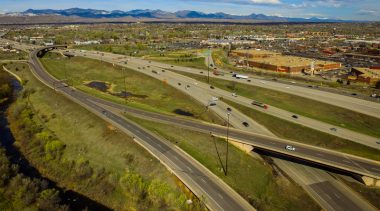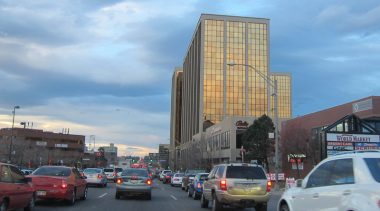Baruch Feigenbaum is senior managing director of transportation policy at Reason Foundation.
Feigenbaum has a diverse background researching and implementing transportation issues including revenue and finance, public-private partnerships, highways, transit, high-speed rail, ports, intelligent transportation systems, land use, and local policymaking. Prior to joining Reason, Feigenbaum handled transportation issues on Capitol Hill for Rep. Lynn Westmoreland.
Feigenbaum is a member of the Transportation Research Board Bus Transit Systems and Intelligent Transportation Systems Committees. He is vice president of programming for the Transportation and Research Forum Washington Chapter, a reviewer for the Journal of the American Planning Association (JAPA), and a contributor to Planetizen. He has appeared on NBC Nightly News and CNBC. His work has been featured in the Washington Post, The Wall Street Journal and numerous other publications.
Feigenbaum earned his master's degree in Transportation Planning with a focus in engineering from the Georgia Institute of Technology.
-
The Proposed Texas High-Speed Rail Project Requires Caution
There is a probability that if this project is built and put into operation, Texas Central will default on its loans, require a taxpayer bailout, or both.
-
Frequently Asked Questions About Managed Lanes
Managed lanes can provide motorists with a reliable means of completing their commutes and reduce funding uncertainties that plague many infrastructure systems.
-
Frequently Asked Questions: Highway P3s
Public-private partnerships are a policy tool that can help governments with the design, construction, financing, operation, and maintenance of highways.
-
Autonomous Vehicles: A Guide For Policymakers
Policymakers should focus on the intermediate effects, including a world in which autonomous and nonautonomous vehicles share roadways.
-
23rd Annual Highway Report
Ranking each state's highway system in 11 categories, including highway spending, pavement and bridge conditions, traffic congestion, and fatality rates.
-
22nd Annual Highway Report
Annual Highway Report finds 40 states now have traffic delays that cost drivers at least 20 hours per year; states made progress on deficient bridges; state highway spending decreased slightly; and pavement conditions worsened marginally.
-
Southern California Mobility Plan
A long-range plan to reduce traffic congestion, improve transit and fund infrastructure across Southern California
-
A Plan to Reduce Congestion in Denver
A new approach to increase mobility, improve bus service, and create sustainable funding sources for infrastructure in Denver
-
21st Annual Highway Report
State highways show small progress in deficient bridges and pavement condition, but states struggle to make significant road improvements









